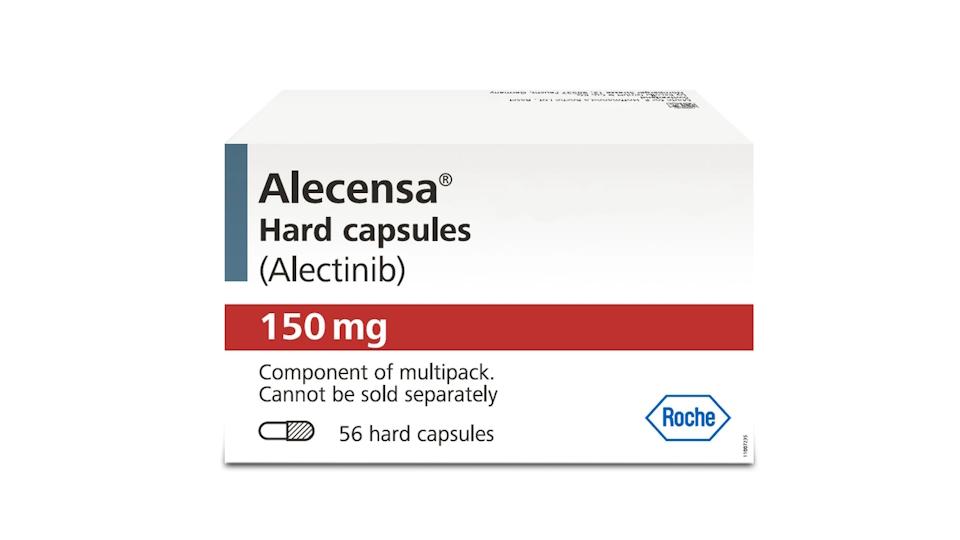Better balance of cancer treatment efficacy and toxicity

The US Food and Drug Administration’s (FDA) Oncology Center of Excellence officially announced its Project Optimus initiative draft guidance in January 2023, and pharmaceutical and biotechnology companies are taking heed. The guidance aims to help clinical trial sponsors identify the optimal dosage(s) for oncology treatments in early-stage trials, instead of focusing on maximum tolerated dose as has been traditionally done for many years.
The days of patients potentially having to unnecessarily tolerate debilitating adverse events, including nausea, thrombosis, or severe fatigue, due to higher treatment doses throughout clinical trial programmes are fading. However, with newer classes of medicine (i.e., antibody drug conjugates, bispecific antibodies, cell and gene therapy, tyrosine kinase inhibitors) that patients must use for longer than older treatments, cumulative toxicity is a now critical evaluation point for sponsors.
Project Optimus emphasises efforts to characterise optimal cancer treatment dosages prior to initiating registrational studies, so, oncology trial sponsors, whether large pharmaceuticals or smaller biotechs, are having to navigate new ways of planning and operating early phase oncology trials. As consultative partners, we are seeing firsthand what business-impacting questions and concerns these companies are working through, while recognising the importance of this patient-centred approach.
As they change the industry mindset (and practice) towards early phase dose optimisation, sponsors will uncover many unknowns, requiring enhanced sophistication in trial planning and design. We discuss key considerations for effective early dose optimisation below.
Scenario building
Although early phase dose optimisation will require sponsors to put in additional time and resources during preparation of first-in-human studies, we are seeing the benefits of model-informed scenario planning, which the FDA encourages. Instead of waiting until post-marketing stages, we are working with sponsors to help determine what the optimal dosage may be, by developing study design scenarios for review - a crucial step in the process. To better evaluate and characterise appropriate dosages, clinical teams need to include dose optimisation cohorts in one or more tumour types, at two or more dose levels, which adds to sample size and timelines. But the simulated holistic view of safety, efficacy, pharmacokinetic/pharmacodynamics, biomarkers, and electronic patient-reported outcomes data - possible while reviewing dosages earlier - can help sponsors build upon that model and continue accumulating data up to registration studies.
Close collaboration with experienced biostatisticians and pharmacometricians in planning can help with effective modelling simulation activities to determine optimal doses for phase 1 studies. Dose optimisation cohorts can be included after completing dose escalation and prior to dose expansion into specific patient populations. Alternatively, sponsors may take a working recommended phase 2 dose from dose escalation and use that dose to evaluate clinical activity in dose expansion cohorts. If an efficacy signal is observed in specific indications in dose expansion, that tumour type can then be used for dose optimisation cohorts.
Collecting necessary data
Given that each sponsor’s assets, programme pipelines, and business objectives will differ, it is vital to set the foundation of planning with these factors in mind. For some biotech companies interested in having a larger pharmaceutical company in license treatments, it is vital to know how much data is necessary to collect and provide. On the other hand, the licensee company may need to gauge the level of risk tolerance in bringing in the asset without having model-informed dose optimisation insights.
Though it is still early to determine what model-informed data insights are necessary to include for in licensing agreements, during planning stages, sponsors need to consider at what stage the asset is in-licensed and what data can be provided at that time.
Because data completeness and quality are critical, sponsors and study teams will need to ensure that safety and efficacy data are fully reviewed and cleaned for enhanced modelling. Central lab teams would also need to perform biomarker assessments quickly and at high quality to prepare for simulations. Sponsors will need to determine whether central imaging should be instituted during or after completion of dose optimisation cohorts. This decision will be based on the efficacy signals in these cohorts.
Regulatory engagement
The FDA continues to provide more clarity and specifics for Project Optimus guidance, and the industry continues to see a tremendous change in traditional approaches. However, right now, there are multiple ways to consider early phase dose optimisation. As such, having an open dialogue with the FDA will be critical for sponsors to show their efforts to work within its guidance as trial programmes are planned and developed. This is especially important because company and/or asset development goals and business priorities may shift, making communication critical at each step of the process.
Specifically, for some smaller biotech companies, leadership teams may have exceptional scientific, business, or financial backgrounds, but limited clinical trial, regulatory, or commercialisation experience. But because these companies are driving innovations in cancer care, CRO partners with long-standing experience with the FDA and other regulatory authorities can help provide consultative guidance throughout the clinical journey, including preparing sponsors for ongoing meetings with the agency. Particularly, if CROs assist with data management and cleaning, sponsors can lean on these partners to provide the necessary data outputs for required data summaries and documentation submissions to the FDA and provide clarification, as needed.
Only the initial stages
The oncology community certainly recognises the importance of transforming oncology drug development, putting great emphasis on the patient’s experience and quality of life, especially as newer options allow for this possibility. However, in the throes of Project Optimus, the industry is only in the beginning stages of understanding how early phase dosage optimisation can give patients what they need, while also meeting demands of a complex development landscape with time and budget in mind. For some biotech companies, this can signify a make-or-break situation, where optimising early phase dosages means pulling key expertise and resources in to heighten innovation in trial design and operations. This is also true for those who are currently reworking trial strategies and activities to accommodate Project Optimus guidance prior to submitting a new drug application.
As the industry learns more about Project Optimus and gets early dose optimisation experience under our collective belt, we will also need to consider other factors that may evolve from thought to reality. This includes how the FDA’s guidance will influence other regulatory authorities’ requirements or how sponsors can most efficiently address new requirements for larger and more complex early phase trials.
There is certainly more to come for this priority focus in cancer care.
About the authors
 Jeffrey Hodge, vice president of precision medicine oncology within the Oncology Center of Excellence at IQVIA, has 30 years of oncology drug development experience. In his current role, Hodge helps to provide innovative solutions in precision medicine oncology to pharmaceutical and biotech companies.
Jeffrey Hodge, vice president of precision medicine oncology within the Oncology Center of Excellence at IQVIA, has 30 years of oncology drug development experience. In his current role, Hodge helps to provide innovative solutions in precision medicine oncology to pharmaceutical and biotech companies.
 Gijsbert Veerman brings more than 25 years of oncology clinical research experience to his role as global therapeutic area head of early phase oncology at IQVIA. With extensive experience in early phase oncology drug development, Gijsbert provides emerging biotech and large pharmaceutical customers with early phase oncology strategy and study design input, including first-in-human studies and adaptive study design. He helps provide global oversight for programmes in immuno-oncology, targeted therapies, and cell and gene therapies.
Gijsbert Veerman brings more than 25 years of oncology clinical research experience to his role as global therapeutic area head of early phase oncology at IQVIA. With extensive experience in early phase oncology drug development, Gijsbert provides emerging biotech and large pharmaceutical customers with early phase oncology strategy and study design input, including first-in-human studies and adaptive study design. He helps provide global oversight for programmes in immuno-oncology, targeted therapies, and cell and gene therapies.
 Matt Simmons is global head of oncology strategy at IQVIA Biotech, where he provides strategic guidance to the oncology operational teams, as well as consultative oversight for biopharma and biotech sponsors developing oncology therapeutics. He has more than 25 years of experience across all phases of drug development, with large and small pharma, CROs, and consulting and software companies, and has managed a leading oncology phase 1 clinical research unit in London.
Matt Simmons is global head of oncology strategy at IQVIA Biotech, where he provides strategic guidance to the oncology operational teams, as well as consultative oversight for biopharma and biotech sponsors developing oncology therapeutics. He has more than 25 years of experience across all phases of drug development, with large and small pharma, CROs, and consulting and software companies, and has managed a leading oncology phase 1 clinical research unit in London.











